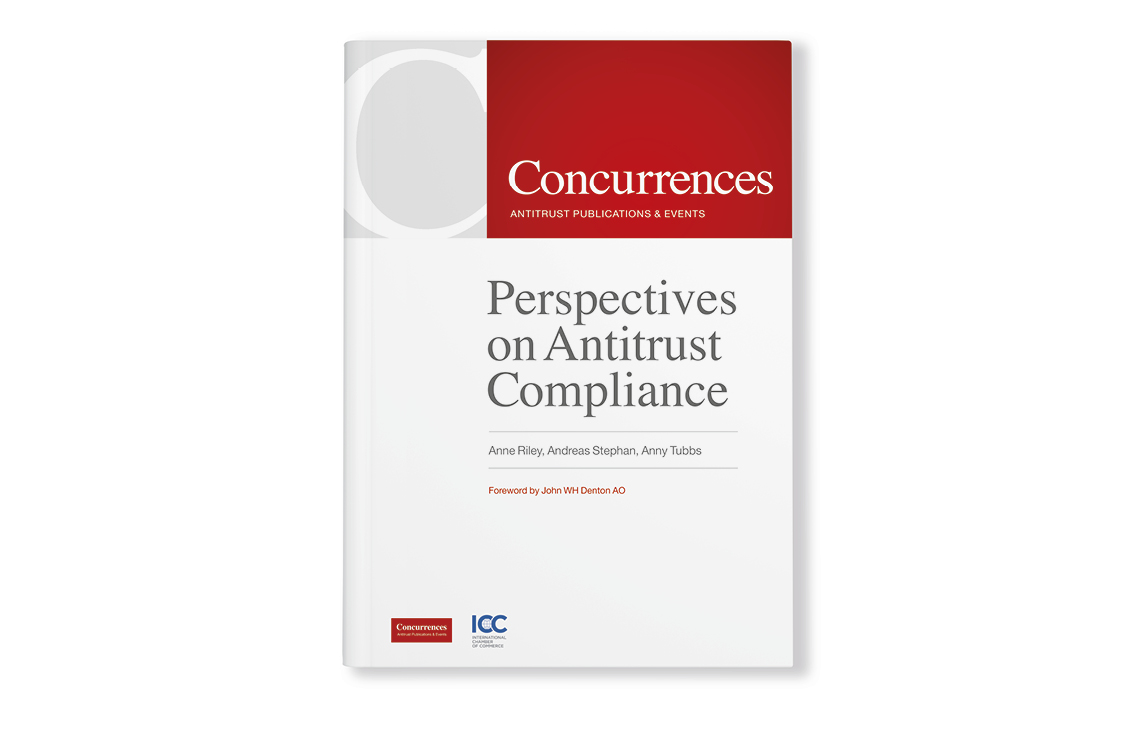Is Collective Action against corruption a competition risk for companies?

Our joint chapter in a new book on Perspectives on Antitrust Compliance answers a common question that arises when compliance officers and company lawyers first hear about anti-corruption Collective Action: are there antitrust risks in engaging with other industry players through Collective Action?
The short answer is no. The longer answer is, as we explain in the chapter, “quite the opposite”.
Corruption distorts fair competition – through bribery, collusion, bid-rigging or other forms of manipulation and foul play. Companies with high ethical standards may struggle to compete in high-risk countries or sectors if others are willing and able to operate in the shadows. In contrast, anti-corruption Collective Action can help to level the playing field between competitors and increase standards of transparency and integrity across an industry or region.
Neither a cartel nor a class action
Our chapter first covers the scope and purpose of anti-corruption Collective Action. This is important because the term “Collective Action” itself may, ironically, trigger negative associations. One may think of class actions, collective bargaining, or collectivised and planned economies that stifle choice and competition.
Rather, the “collective” aspect of Collective Action refers to the common challenge that brings participants together as a group, and the group’s shared approach to tackling it. For example, the Maritime Anti-Corruption Network (MACN) brings companies from the shipping sector together to address, among other things, the widespread problem of bribe solicitation in ports. This is a problem that negatively impacts all companies, but which none can solve alone.
In these cases and many more, peer collaboration is important. This is because corruption is a complex global problem that needs diverse and innovative solutions. Collective Action offers a wider range of tools and approaches, including the ability to design new anti-corruption tools that take account of business realities and work in practice.
Overcoming competition concerns
Our chapter gives practical advice on how to overcome concerns and avoid antitrust risks, including many examples from initiatives around the world. A few simple steps could help companies to reap the benefits of engaging in anti-corruption Collective Action while avoiding risks. Examples include:
- Members of the Collective Action can be drawn from employees who are sensitive to the risks of antitrust and competition law concerns and who are also familiar with the corruption risks. Such persons could include senior compliance officers, the general counsel or similar officers.
- Have one independent external legal advisor who is not retained by an individual company attend the first meeting, to explain the antitrust golden rules.
- Following this, a suitably qualified and independent facilitator, such as an anti-corruption expert, should be able to address antitrust risks and manage meetings appropriately.
- Develop an antitrust policy that all member companies approve according to their internal procedures. This should include matters that cannot be addressed or discussed and what to do if a sensitive issue does arise inadvertently.
- The independent facilitator should draft and disseminate meeting agendas and reading material in advance,.
- As soon as possible, transparently publish the goals of the initiative, the rules and conditions for participating, and any public outputs on a website.
- Meeting minutes can be approved by external legal counsels and stored by companies and the facilitator, in case competition authorities request to see them.
- Internal documents useful for benchmarking – such as codes of conduct or standard operating procedures – should be shared confidentially with the facilitator, who can anonymise and sanitise them to inform group discussions.
- No sharing of sensitive internal information such as prices or fees or blacklisting of third-party intermediaries.
- Hold an early brainstorming session to discuss trust-building and related topics.
Intrigued?
See more details about the chapter and a link to the publisher’s website.
For more information on this topic, or other questions on anti-corruption Collective Action and compliance, feel free to reach out to the Basel Institute’s Collective Action team through our new Helpdesk service.
You’ll find more resources and publications on the B20 Collective Action Hub, a free online resource centre and database on anti-corruption Collective Action around the world.
To see the power of Collective Action in practice, explore the activities and achievements of the Maritime Anti-Corruption Network.
About Perspectives on Antitrust Compliance
Edited by Anne Riley, Andreas Stephan and Anny Tubbs, the book focuses on debates surrounding the function and design of antitrust compliance programmes. Its starting point is that increasingly, antitrust compliance is seen by companies not as a standalone topic, but as part of a suite of compliance efforts needed by companies to ensure that they comply with societal and shareholder expectations.
The book is available from Concurrences. For a 5 percent discount, use the code BASEL5 on checkout. The code is valid until 14 April 2022.




